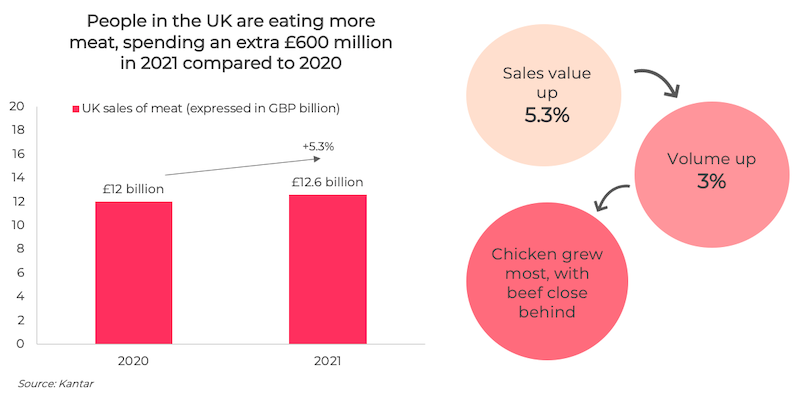What the media say consumers want, and what they actually buy in the supermarket, are usually entirely different. This has been underscored by another surge in sales of meat in the UK – a country often depicted in the media as a land of meat-reducers and flexitarians.
As the below graphic shows, UK consumers increased their meat consumption in 2021. This growth comes on top of the 10% surge in demand in 2020, when meat was one of the three best-selling categories in UK supermarkets.

Consumer interest in meat remains strong - despite a decade of anti-meat messaging - because it tastes good, it's versatile and it's an important part of food culture. Meat's popularity - especially among younger males - has been helped by the rising perception of protein as 'the nutrient that can do no wrong' and its association with weight management and a healthier and firmer body.
Meat producers are also working on sustainability - and that's what consumers are waiting to hear, a message that means they can give themselves permission to enjoy meat without guilt (although already most don't experience any guilt and have no intention of doing so).
In the UK the anti-meat campaigners have shot themselves in the foot. The stridency of militant vegans, animal rights campaigners, Extinction Rebellion and others has proven to be a turn-off to the average person. Trying to make people feel guilty and take away something they love is, it turns out, not a great marketing technique.
What you read in the mainstream media about consumer habits - especially in relation to meat and dairy - always needs to be taken with a large pinch of salt. Actual sales in the supermarket are the only true measure.

